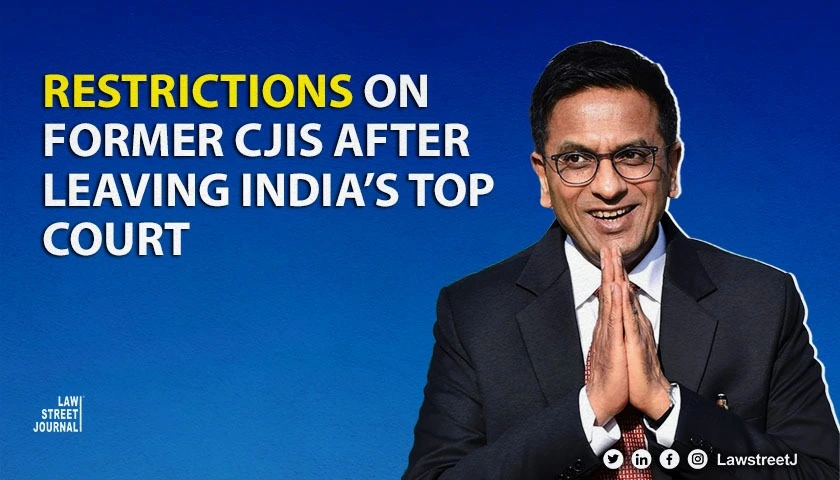New Delhi: Chief Justice of India DY Chandrachud is set to step down on Sunday, November 10, making way for Justice Sanjiv Khanna, who currently ranks as the senior-most judge in the Supreme Court. Justice Khanna will assume office on Monday, November 11, as India’s 51st Chief Justice, succeeding CJI Chandrachud.
Prohibition on Legal Practice
The Chief Justice of India plays a vital role in upholding justice and the integrity of the Constitution. Following retirement, however, both CJIs and Supreme Court judges are legally barred from practising in any Indian court, as stipulated by Article 124(7) of the Constitution. This restriction is rooted in ethical considerations, ensuring judges remain impartial even after completing their terms.
Rationale Behind the Ban
The prohibition on post-retirement legal practice is designed to maintain public trust in the judiciary’s impartiality. As a cornerstone of democracy, the judiciary’s integrity depends on the perception of unbiased decision-making. Allowing former judges to practice could lead to questions about potential career-focused rulings during their judicial tenure.
Key Reasons:
• Avoiding Conflicts of Interest: This restriction helps reduce potential biases from past relationships or cases.
• Preserving Judicial Authority: Allowing former Supreme Court judges to practice could detract from their dignity and authority.
• Preventing Ethical Complications: Knowledge of sensitive information from their judicial service could lead to ethical dilemmas in future cases.
Post-Retirement Roles for a CJI
While they cannot advocate in court, retired CJIs and Supreme Court judges often contribute in other professional capacities that respect judicial ethics:
• Arbitration and Mediation: Retired judges frequently serve as arbitrators or mediators, lending their expertise in dispute resolution under the Arbitration and Conciliation Act, 1996.
• Commissions and Tribunals: Many former Supreme Court judges head or join commissions like the National Human Rights Commission or the National Green Tribunal, where their experience benefits matters of national and administrative importance.
• Academic and Educational Roles: Many retired judges engage in teaching at law schools, delivering lectures, or writing legal publications.
• Public Service: Retired judges can also be appointed to roles like governors or serve on government committees, contributing to public policy.
Criticisms of Post-Retirement Appointments
Some argue that taking government roles post-retirement may impact perceptions of judicial independence. For instance, former CJI Ranjan Gogoi’s swift appointment to the Rajya Sabha sparked debates over whether such positions might compromise the impartiality expected of the judiciary.















